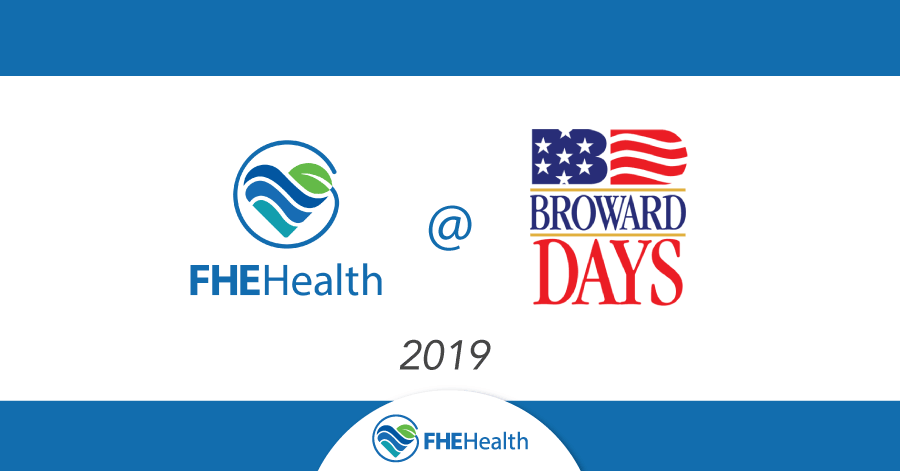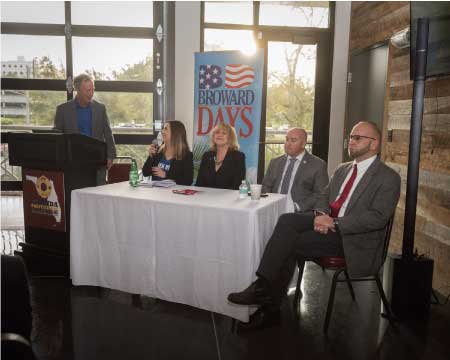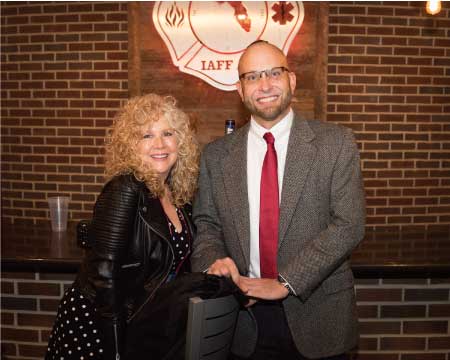
This month FHE Health participated in a community conversation with state and local elected officials about how the national opiate epidemic has affected Broward County and how best to address the crisis.
In recent years, the organization “Broward Days” has hosted an annual gathering for elected officials, municipalities, educators, non-profits, and selected businesses from the community, who come together for a two-day meet and greet to discuss our community’s most pressing needs and opportunities. At the top of the list of topics for discussion: ending the opiate epidemic in Broward, which like other regions across the country has seen far too many overdose deaths from fentanyl and other opiates, coupled with soaring rates of prescription drug abuse.

Like gatherings from previous years, this year’s meet and greet (March 12-13) took place in our state’s capitol Tallahassee, and featured a diverse array of esteemed speakers and panelists from both the public and private sectors. Among them: our very own Chief Clinical Officer Dr. Beau Nelson, DBH, LCSW. He was among a group of panelists invited to share their insights on the opiate crisis with an audience of around 75 people, consisting of elected officials, hospital C level executives, first responders, educators and providers from Broward County and at the state level.
Joining Dr. Nelson were panelists Tammy Tucker, Psy.D., from Memorial Regional Hospital; Heather Davidson, Director of Public Policy & Strategic Initiatives for United Way; and Steve Hudson, the president of Pompano Beach Professional Firefighters.
Saving Lives from Opiates Is About Access to Addiction Treatment – Not Just Narcan

In his talk, Dr. Nelson emphasized that ending the opiate crisis is not all about Narcan and saving lives in crisis situations. The real answer to the problem, he said, lies with access to care and effective treatment for people with opiate addiction, their families and ultimately the community.
Summing up his remarks, he said, “There is a much bigger picture to the opioid crisis and it is not just statistics and emergency response. It is about people learning the recovery skills, so they can break the vicious cycle of addiction, begin healing, and have hope.”
Overdose Deaths in Broward County Down Thanks to Narcan
The panel discussion had some good news to share regarding efforts to reduce overdose deaths in Broward County— namely, that fatal overdoses had decreased from roughly four per day to an average of 1.5 per day. On the other hand, rates of opiate abuse remain lamentably high.
In other words, there is still much more work to be done in addressing Broward’s addiction crisis, which will require more creative solutions and greater collaboration from key community stakeholders in the public and private sectors. But Broward Days—and FHE Health’s participation–signified progress in that effort.
Addressing Florida’s Treatment Gap and Other Aspects of the Addiction Crisis

If you’re wondering how, just ask FHE Health Community Impact Director Kathy Hurt, whose job is to build bridges with the community. She was at Broward Days in order to strengthen our relationships with other influential players in the fight against the addiction epidemic. Hurt pointed to progress made in these areas of ongoing discussion:
- “Medically Assisted Treatment” and its pros and cons
- How to address Florida’s treatment gap (which leaves far too many people in need of treatment) and the absence of meaningful solutions at the state level
- Legislative bills to increase the availability of Narcan to addicts, better regulate sober homes and possibly treatment providers, provide more effective indigent care treatment, and provide behavioral health services to first responders
“This was such a wonderful opportunity for the private sector, municipalities and state governments to work together in creating solutions in many different areas of need,” Hurt said.
In the same spirit, she noted how FHE Health is collaborating with the Broward Bar Association to put together a panel discussion on the stigma of mental health and addiction issues among attorneys.
FHE Health will also be sponsoring the group Combat Hippies’ debut play on March 29. Combat Hippies is a non-profit organization made up of veterans who have found a healing outlet for their trauma and PTSD in theatrical readings, poetry, and rap.






